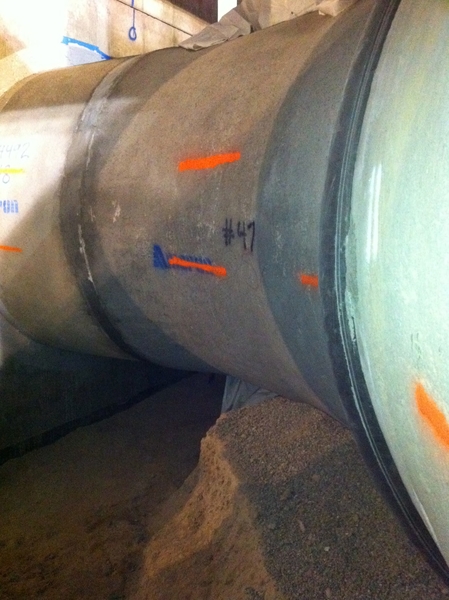Evaluation of Acoustic Wave Based PCCP Stiffness Testing Results

Prestressed concrete cylinder pipeline (PCCP) condition assessment methods include an acoustic wave propagation testing technology (ePulse) to identify sections of pipeline with reduced structural stiffness. A recent innovation, ePulse, is a survey level test that uses acoustic sensors to measure the velocity of an acoustic wave in a pipe segment. The wave speed in the pipe is a function of the wave speed in an infinite body of fluid and the pipe stiffness; therefore, changes in wave speed may indicate changes in the pipe wall stiffness along the test segment. Reduced pipe wall stiffness may be an indication of broken prestressing wires, lower prestress, deteriorated mortar coating, cracked concrete core and others. This paper presents a brief description of acoustic wave based pipe stiffness testing and the structural and failure risk analyses and external pipe inspection to evaluate the ePulse predicted pipe stiffness in several pipelines. Results of a case study including pipe stiffness testing on several sewer forcemains are evaluated based on variability of the measured pipe stiffness within a given pipe class, and comparison of the measured and nominal calculated pipe stiffness. We discuss parameters that may affect the results such as entrapped air, pipeline design properties and layout, appurtenances and other features. We discuss observations from the external inspection of excavated pipe to evaluate the results of ePulse predictions. Results of field inspections indicate correlation of observed distress with predicted reduced pipe stiffness and show that the use of this technology, coupled with structural analysis of the pipeline properties, can identify sections of pipeline with structural deterioration for further investigation.
Publisher
ASCE 2015 Pipelines Conference